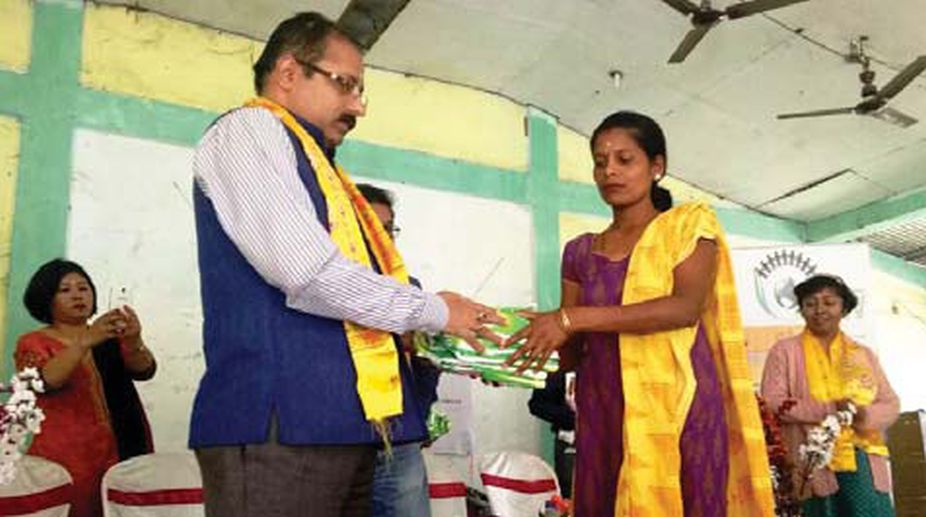The likes of Sabtri Munda, Divya Munda, Prasanti Panna, Jasintha Lakra, all tea workers of the Marionbarie tea plantation at Garidhura under the Kurseong Sub-division near Siliguri, were until now not aware of the fact that the use of unhygienic cloth pads during menstruation could lead to infection and pose other health hazards.
“Lack of awareness among women living in villages and tea gardens and financial constraints to buy sanitary napkins, both play an equal role here,” an official of an NGO said here today as he distributed sanitary pads among the women as part of its programme to mark International Women’s Day.
Advertisement
The NGO organized the programme with cooperation from the local administration. Hundreds of tea workers, their teenage daughters, and other women belonging to the economically backward sections, and those representing 10 self-help groups thronged the Marionbarie community centre at Garidhura, around 20 km from Siliguri, to witness the programme.
“I was not aware of the fact. I have been using cloths during menstruation, but I now know how it so important to maintain hygiene and stop infections and other diseases,” Sabitri Munda said. Divya Munda, a permanent tea worker of the garden, said it is “very difficult” for her to buy sanitary napkins because she cannot spare money to buy them from the meager daily wages she gets.
“I cannot use the napkins regularly because I use the daily wages (Rs 132.50) I get in running the household,” she said.
A woman from nearby Dudhia, Santa Pradhan, said many women in her area too are not aware of the necessity to use such napkins. Concern for Human Welfare, the Kolkata-based NGO, which has been working on health, education, female hygiene and child education sectors, distributed the napkins to 101 women. Each recipient was given 36 napkins free of cost.
Kurseong Sub-Divisional Officer Debasish Chattopadhyay, who attended the programme, praised the move. He also encouraged participants to break the taboo.
“Talking about menstruation cannot be treated as societal taboo. It is not a matter of shame. Importance should rather be given on maintaining good health and hygiene. I will request the block medical officer of health and other health officials to help you further. Surveys have pointed out that the womenfolk need to be healthy for the progress of society,” Mr Chattopadhyay said. “Distribution of sanitary napkins among the poor tribal and tea garden workers is a very important move.
This will help fight against cervical cancer and other diseases in the region,” he added. Secretary of the NGO, Amlan Biswas, said the initiative had been taken under the ‘Mahila Guarav Yojna.’
“We will distribute sanitary napkins again after six months. We have set a target of distributing the napkins among 35,000 tea workers in the Darjeeling- Dooars belt in June this year. These women are not aware of the importance of the napkins and they do not have the capacity to buy them. Many of these women are suffering from Reproductive Tract Infection. The traditional cloth pads can also lead to cervical cancer,” Mr Biswas said.
A class VIII student of the area, Elisa Kujur, said she was not aware that the cloth pads she uses could cause diseases. Kurseong block development officer Nilanjan Mondal and other administrative officers were also present in the programme.











